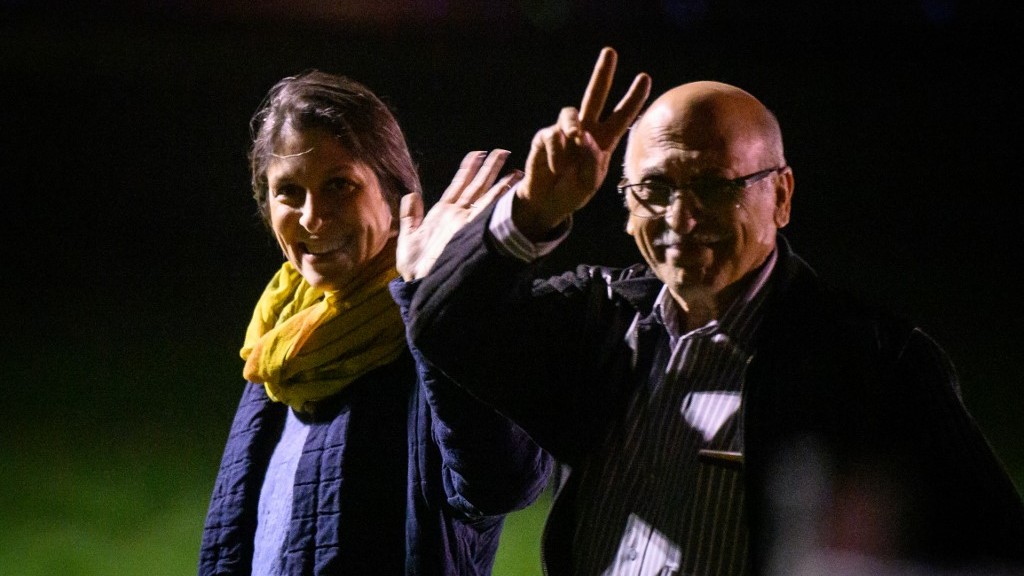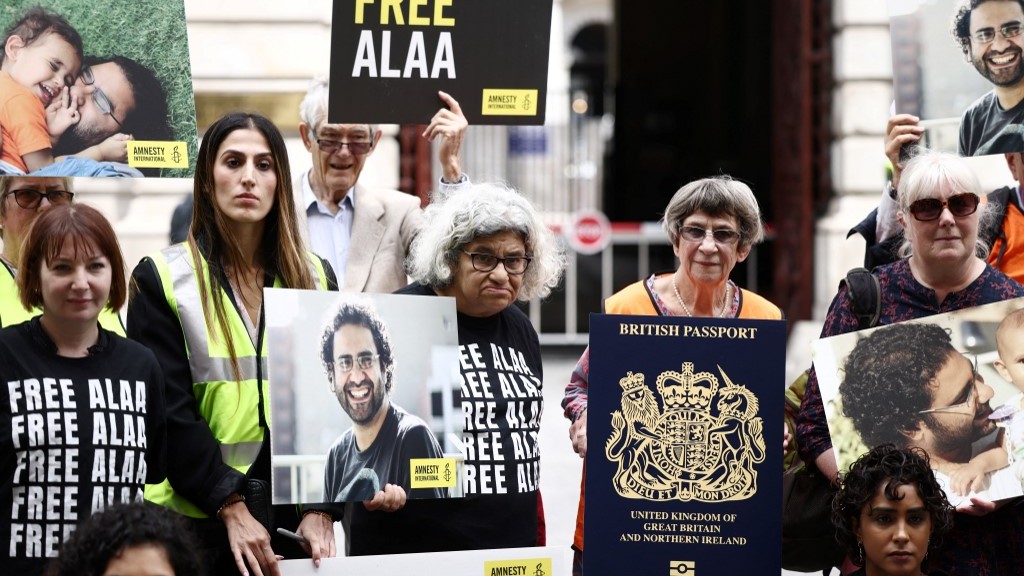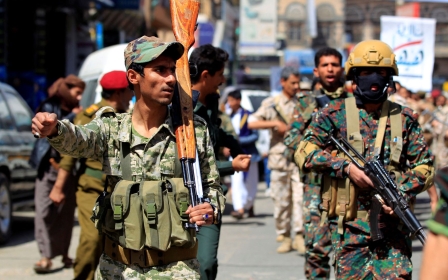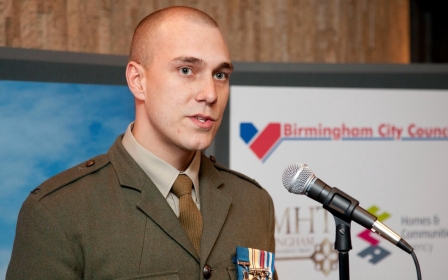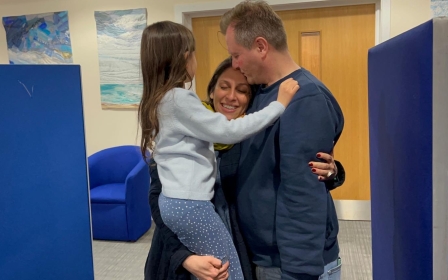British families call on Labour government to 'stand up and fight' for nationals held abroad
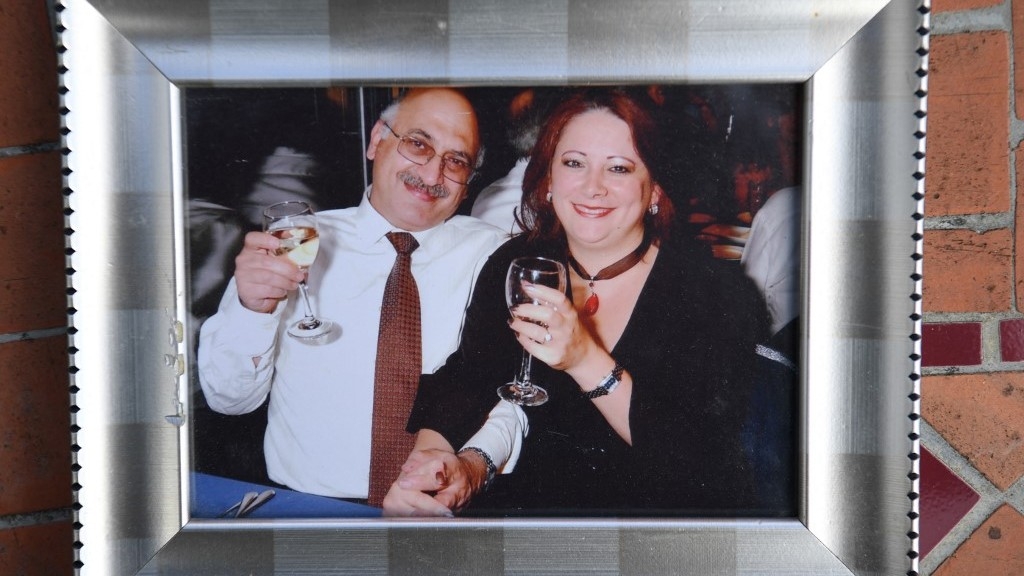
Tucked away towards the very end of the Labour Party’s manifesto was a line offering a glimmer of hope to British families who know a side of the UK government that most citizens will be lucky enough to avoid.
In that line, like others in the Liberal Democrat and Scottish National Party manifestos, Labour pledged to introduce a new right to consular assistance for British nationals who find themselves in cases of human rights violations abroad.
Unlike many other countries, consular support is currently provided to British nationals entirely at the discretion of the UK government of the day.
It’s a fact that often comes as a surprise when citizens find themselves in the middle of a crisis abroad - and is symptomatic of the way the government treats British nationals held in complicated situations overseas that families, their lawyers and campaigners say is in need of a major overhaul.
“It’s an entire world that you know nothing about until you are forced into it,” said David Walters, a former Foreign Office diplomat and consular veteran of over 35 years who now runs a company that gives advice to families with relatives facing difficulties abroad.
New MEE newsletter: Jerusalem Dispatch
Sign up to get the latest insights and analysis on Israel-Palestine, alongside Turkey Unpacked and other MEE newsletters
It’s a world that Anoosheh Ashoori and his wife, Sherry Izadi, also know well.
Seven years ago this August, Anoosheh, a retired civil engineer, was visiting his mother in Tehran when he was arrested in broad daylight on a residential street.
He was interrogated in two different facilities, held in solitary confinement for more than 100 days and sentenced to 12 years for supposedly spying for Israel and acquiring illegitimate wealth, charges he has long denied.
The debacle eventually saw the British government pay off a longstanding £400m debt it owed to Iran, after which Anoosheh and another dual national, Nazanin Zaghari-Ratcliffe, were freed.
“If there was a probability of lightning hitting upon my head, I think that had a higher probability than this happening to me,” Anoosheh told Middle East Eye of his arrest and detention. “But it happened.”
“It can happen to any British citizen.”
'Efficiently ineffective'
Every year, the UK government helps around 5,000 British nationals who are arrested or detained abroad.
Lawyers and organisations working on these cases say the bulk are relatively minor. Many will likely involve British nationals in Spain, where restrictions have recently been imposed in hot spots to curb drunken tourism.
But a minority of cases, like Anoosheh’s, are much more serious, involving state hostage taking, arbitrary detention, alleged torture and other human rights violations.
Just how many individuals and their families are caught up in these kinds of situations is not fully clear. For every case that receives media attention, there will be many others the public never learns about.
Some of the data, like the number of UK citizens held hostage or arbitrarily detained, is not publicly available, although state hostage taking is known to be on the increase worldwide.
However, earlier this year, the Foreign Office said it had received 189 new allegations of torture and mistreatment from British nationals abroad in 2023, which MEE understands from campaigners is an increase from a decade ago.
So the problem appears to be a growing one for the government which has come under repeated criticism in recent years for its handling of these cases.
'You can tell people do care, but they just don’t use any of that power'
-Mother of British son imprisoned in Philippines
Families who spoke to MEE about their experiences describe a “tick box” culture in which they are frequently informed about steps being taken privately for their relatives’ cases, but believe quiet diplomacy has been fruitless.
“They always respond to everything I say and they are very efficient but they just have no effect. They are efficiently ineffective,” said the mother of a British citizen who has been held in an overcrowded prison in the Philippines for three years on drug charges that he firmly denies.
“You can tell people do care, but they just don’t use any of that power. They are terrified of doing the wrong thing or being accused. No one is willing to stand up and fight.”
MPs have raised their own concerns. A scathing Foreign Affairs Committee report released last year called for a laundry list of fixes to the way the government approaches state hostage cases, changes it said were also relevant to other complex cases.
Their recommendations included establishing the position of a director for arbitrary and complex detentions, who would coordinate the government’s response and be a main point of contact for families, and fostering greater parliamentary scrutiny of the government’s overall approach. Many had already been put to the government in a 2019 review.
Several months later, a parliamentary watchdog found that the Foreign Office had failed to protect Matthew Hedges, a British academic imprisoned in the United Arab Emirates in 2018, from torture.
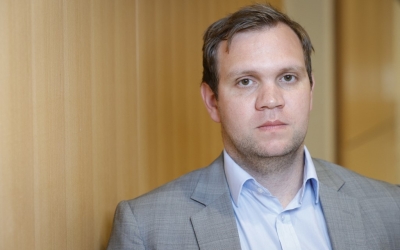
The Parliamentary Ombudsman recommended that the Foreign Office apologise and pay £1,500 to Hedges and review its internal guidance on the handling of alleged torture and mistreatment cases, which the government committed to do.
The Foreign Affairs committee was incensed, questioning why the ombudsman’s findings, and not its inquiry, had sparked a review. It described the Foreign Office's culture as one “insufficiently responsive to complaints or criticism”.
Haydee Dijkstal, a barrister with 33 Bedford Row Chambers who represented Ashoori and currently represents other UK nationals arbitrarily detained abroad, said concerns about the UK government’s approach to providing consular access and assistance has been “raised and raised again”.
“But detained nationals and their families continue to experience the same issues which leave them feeling in the dark and unsupported,” she told MEE.
'He has a name'
Sherry Izadi said campaigning to bring her husband home was an uphill battle, starting with her first call for help.
She said it was around seven or eight months into Anooseh’s detention that he asked her to contact the government, worried that his British passport, which had been confiscated by Iranian authorities, was somehow being misused.
'If there had been no public pressure, he would still be there'
- Sherry Ashoori, wife of Anoosheh Ashoori
“He said, ‘Why don’t you ring the Home Office and tell them this has happened?’ I said, ‘Yeah, good point.’ So I searched and realised it was the Foreign Office I had to ring.
“It was the evening and I rang them. I explained the situation and the guy on the phone said, ‘Sorry, there’s nothing we can do. I’m sorry.’”
Sherry hung up, and she and her son, Aryan, looked at each other. “We thought that was unusual. It was almost like ‘Why have you rung us?’”
Two hours later, a different Foreign Office official rang back. “He said, ‘I’m really sorry for what my colleague said. He had no idea what he was talking about and he referred your case to me. Can you please tell me in detail everything that has happened?’”
The two-hour conversation led to the family being assigned a case officer who emailed or called initially each week to update them on what was happening with his case. She was urged not to go public.
“They said, ‘The decision is entirely up to you, but we find diplomacy works better if there is no publicity’,” Izadi said.
Initially, the family was quiet. They thought it would jeopardise Anoosheh’s case, especially before he was sentenced.
Over several years, they received hundreds of emails updating them on various British officials urging the Iranians to release Anoosheh. When the family asked for more significant action, they were told the government was doing its best.
But when Iranian state media reported that Anoosheh was a British spy and that he had been sentenced, Sherry said she could no longer stay silent.
“We had to publicise and to clear his name and start campaigning because, by then, we realised we couldn’t rely on the Foreign Office to do anything,” she said.
By the time Anoosheh returned home in March 2022, the family had dealt with four foreign secretaries who had to be briefed on his story each time they came to power.
In parliament, they had struggled to get Anoosheh named. Instead, his case was often referenced obliquely, only as “Nazanin and others”.
“That became such a sore point. I was like, he has a name. It’s not ‘others’,” said Sherry. “A couple of times, when James Cleverly was in charge, he actually forgot Anoosheh’s name. Once, they had him as a woman. It’s a whole mess of things.”
She has concluded: “If there had been no public pressure, he would still be there.”
Quiet diplomacy failing
Mona Seif, an Egyptian human rights activist and sister of Alaa Abd el-Fattah, said she believes the publicity her family has generated has been key to bringing the government’s attention to her brother’s case.
Abd el-Fattah, a writer and activist who helped lead the 2011 uprising in Egypt that toppled Hosni Mubarak, has been repeatedly imprisoned over his activism.
In 2019, he was arrested once again and sentenced in December 2021 to five years for supposedly spreading false news that undermined national security.
'It’s not just that it didn’t get Alaa out of prison, but it hasn’t gotten him a consular visit'
- Mona Seif, sister of Alaa Abd el-Fattah
He obtained British citizenship while incarcerated through his mother, the rights activist and mathematician Laila Soueif.
“In our case, I think [the UK government] can’t avoid us because it’s such a public case. We are a very public family and we can be nagging,” she said.
But Seif is at pains to stress that she has met other families “who were trying within their capacity to do everything they can” and just hadn’t garnered the same attention or secured further help.
“It’s shocking how relaxed the UK government is towards its citizens and not all of them are dual citizens,” she said.
“This file is badly managed. I’m not even sure if it’s badly managed. I’m not sure they care about it enough.”
Like the Ashooris, Seif said her family had been pushing the government to take stronger action in Alaa’s case for years.
“They have been telling us that soft diplomacy works, that this is their way and their approach,” she said.
“In all honesty, it has completely failed. It has been more than two years now and it’s not just that it didn’t get Alaa out of prison, but it hasn’t gotten him a consular visit.”
The parents of the British citizen being held in the Philippines on drug charges have been silent about his case in the media for three years.
They believed that if they didn't make a public fuss, authorities and politicians would fight to get their son, who has disabilities, released. But they say that hasn't happened.
Now they are questioning that strategy as their son’s sentencing hearing approaches and were willing to speak about his case with MEE as long as he wasn’t named.
If found guilty, the family said he could be sentenced to up to 20 years in prison. Even if he is found innocent, they have been told he is likely to be locked up again pending a decision on his immigration status, with a large fine imposed for overstaying his visa during his three-year detention.
“We’ve tried all routes that we were told to try and nothing has happened ... I feel the guilt that I should be able to do more, but I can’t,” his father said.
His mother added: “As parents, we’ve always been able to find a solution and, with this, we haven’t because people won’t do what they are meant to do. They should be fighting for him.”
A starting point
Given the scale of concerns from families, enshrining consular support as a legal right for British nationals in human rights cases might seem like a very basic step.
But campaigners told MEE that if it comes to pass, this right could bring greater transparency and trigger a shift in the way the government approaches these cases overall.
Chris Esdaile, senior legal adviser for Redress, said: “The starting point will be a presumption that human rights concerns should be drawn to the attention of the other state, it should be escalated within the UK authorities to ambassador level and to ministerial level.”
Esdaile said it’s likely that internal Foreign Office policies already set out that cases of British nationals abroad with human rights concerns are already escalated to ambassadors and ministers within the UK government.
“In this day and age, when there is such movement of people, that there should not be any requirement on the UK government to do anything legally speaking - and a British national is being tortured in another state - does seem to us to be rather extraordinary.”
Comparative research that Redress released earlier this year shows that the UK’s position stands in stark contrast to more than a dozen countries, mostly in Europe, which offer strong, enforceable legal rights.
Sena Atici, who leads Amnesty UK’s work on British nationals detained abroad and is in regular touch with families in these situations, called the manifesto pledges “a great first step”.
“It’s great to see the recognition of the need to provide more support to British nationals arbitrarily detained abroad,” she said.
At a minimum, Atici said any new strategy should include the government being more vocal, calling publicly for arbitrarily detained nationals to be released, assuming their families approve.
The government, she said, must also press for detainees to have access to lawyers, fair trials, medical care and consular access - and regularly meet with family members in person.
“We’re hoping that a clear, consistent strategy would ensure that families get more support,” she said.
Walters, the retired diplomat and consular officer, remains doubtful that a new government will be able to improve the situation, particularly given the volume of people travelling these days, the cuts in funding to consular services over the years and the pressure on diplomats to secure trade deals after Brexit.
“The last thing you want is to start complaining about some guy thrown in jail,” he said. “Your career won’t advance. You will get no commercial deals.”
Anoosheh Ashoori and Sherry Izadi, however, said they were happily surprised that the push to make consular services a legal right had even made it into Labour's manifesto.
In a private meeting with party leaders earlier this year, Anoosheh said he was told not to get his hopes up that the issue would be raised in an election.
But they would like to see change go much further. They believe the Foreign Office should set up a position, similar to a role the US government established in 2015, which would put one person in charge of complex consular cases.
“One person who is a civil servant, rather than a politician, so there is no political bias and so when, for example, the foreign secretary changes, we don’t start again,” Sherry said.
“I think that would have really, really benefited us.”
Others, meanwhile, are still in the thick of their battles.
Ahead of the election, the parents with the son held in the Philippines had already sent an email to their former MP to try to get a meeting as soon as possible with the incoming British foreign secretary.
“There is a chance with a new government, a new political party in charge, a new person to the post after three years,” said the father.
“Especially if at that point we go public with our story, what an opportunity to look good.”
Middle East Eye delivers independent and unrivalled coverage and analysis of the Middle East, North Africa and beyond. To learn more about republishing this content and the associated fees, please fill out this form. More about MEE can be found here.


